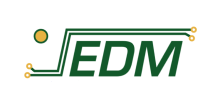Partner Events
Electronic packaging for green applications

Through regular events and programs, IMAPS chapters serve as local networks that allow microelectronics professionals to build business relationships, share industry information, and find technical solutions. IMAPS chapters organize and sponsor symposia/conferences, vendor's days, technical presentations, and social events.
 A five-day primer in system safety engineering
A five-day primer in system safety engineering
 In collaboration with the University of York (UK).
In collaboration with the University of York (UK).
The Introduction to System Safety course is a five-day primer in system safety engineering. The course contains a mix of lectures, discussions and small group exercises, supported by international examples. Whilst the course touches on broader issues in theorizing risk and managing safety within organisations, its main focus is to equip safety practitioners with the practical understanding necessary to engage with safety activities.
The course is organized in collaboration with the University of York and is based on material of their MSc of Science in Safety Critical Systems Engineering program.
The course is structured according to the engineering lifecycle of a service or physical system, and covers:
- Concepts and terminology for safety;
- Overview of the engineering lifecycle from a safety perspective, including the role and intent of key safety activities;
- Hazard identification and setting of safety requirements;
-
Techniques for safety analysis to support design, including:
- Failure Modes and Effects Analysis (FMEA);
- Functional Failure Analysis (FFA);
- Hazard and Operability Studies (HAZOP);
- Fault Tree Analysis (FTA).
- Safety cases, including notations for recording arguments and evidence;
- Specific issues in safety analysis, including, Human Factors, Software and Data Safety.
PRESENTERS
The course is a University of York course and will be presented by dr. Oleg Lisagor and dr. Christian Fairburn
In addition, expertise from Prof. Jeroen Boydens and Prof. Davy Pissoort from KU Leuven will be added to the course.
Dr. Oleg Lisagor
Dr. Lisagor is a lecturer at the High Integrity Systems Engineering group at the Dept. of Computer Science of the University of York and a Head of one of University's Colleges. His research interest is Model-based Safety Assessment of complex, large-scale and software-intensive systems. He has collaborated in and lead work packages of several collaborative research projects such as MISSA, ISAAC, Aribus DepNet and OPENCOSS. Dr. Lisagor's past research collaborators include Airbus, Alenia Aeronautica, Dassault Aviation, Thales, ONERA and FBK. More information can be found here: Curriculum Vitae
Dr. Christian Fairburn
Dr. Fairburn is the Director of Reliable Interaction Ltd, a specialist in Human Factors and Ergonomics, and a part time lecturer at the High Intergrity Systems Engineering group at the Dept. of Computer Science of the University of York. He has worked in the areas of Air Traffic Control , cockpit controls and displays, mixed reality (Live/Virtual/Constructive) training systems, autonomous vehicles, civil security, and many more. Dr. Fairburn has qualifications in both Psychology and Computer Science and maintains active connections with leading academics in these areas. More information can be found at his LinkedIn profile.
Prof. Jeroen Boydens
Prof. Boydens is the head of the Software Coding division of the Mechatronics Group at the Dept. of Computer Science of the University of KU Leuven. His current research focuses on Software-implemented Reliability in a context of Functional Safety. He coordinates and collaborates in several national and international research projects, such as MSCA ETN SAS, MSCA ETN PETER, MSCA ETN PETER, and IWT TeTra RELIM. Prof. Boydens' research collaborations include CNHIndustrial, Barco, Melexis, DANA and Televic.
Prof. Davy Pissoort
Prof. Pissoort is the head of the FMEC division (focusing on Electrical and Electronic Systems) of the Mechatronics Group at the Dept. of Electrical Engineering of KU Leuven. His current research focuses on electromagnetic compatibility, hardware dependability and functional safety. He coordinates and collaborates in several national and international research projects, such as MSCA ETN SAS, MSCA ETN PETER, CORNET EEWISE, CORNET RESSIAR, VIS-INPROVOL. Prof. Pissoort’s reach collaborations comprise companies as, amongst others, Valeo, Bosch, Horiba-Mira, Barco, Melexis, ONSemiconductor, Schlegel Electronic Materials, etc.
Good EMC engineering practices for large machines, systems and installations
 Learn how to avoid electromagnetic interactions that cause delays and increase cost
Learn how to avoid electromagnetic interactions that cause delays and increase cost
On Thursday Feb 21 and Friday Feb 22 2019, the M-Group and lab FMEC organizes a two day seminar on good EMC engineering practices for large machines, systems and installations.
EMI is rapidly increasing in modern industry due to the increasing use of, amongst others, high-efficiency switching power conversion in DC power supplies, motor drives, HVAC and lighting. Despites this increasing EMI, the reliability of machines, systems and installations should be continuously ensured over their full operation life. Trends towards smart machines, Industry 4.0 and Internet-of-Things comprise more wireless sensor networks, continuously increasing clock frequencies, higher complexity and integration, lower voltage levels and noise margins, etc. As a result, achieving EMC for machines, systems and installations is getting more challenging every day. This training course provides all the necessary information and many practical techniques for achieving in the most cost-effective way EMC for today's and tomorrow's smart machines, systems and installations.
This course is organized within the framework of the following Technology Transfer projects:
- CORNET RESSIAR / TETRA TRANSSIMS "Requirements for Smart Sensor Systems for IoT-Applications in Retrofit Equipment "
- CORNET EEWISE / TETRA EWISE "EMC for Emergent Wireless Systems"
Key-Note speaker:
Key-note speaker of this seminar is Keith Armstrong (UK). Keith has written many practical papers and books on design for EMC and EMC debugging. Much of his working life involves solving real-life EMC problems in high-technology products, systems, and installations, for a variety of companies and organisations in a wide range of industries. Keith has always aimed to make products easy to design and manufacture, work properly, please their users, and make money for their manufacturers.
A Reality Check of Technologies for IoT Connectivity
 In this workshop we will present the latest advances related to long range IoT & LPWAN (NB-IoT, LoRa, Sigfox, IEE802.15.4g, IEEE802.11ah, …) communication.
In this workshop we will present the latest advances related to long range IoT & LPWAN (NB-IoT, LoRa, Sigfox, IEE802.15.4g, IEEE802.11ah, …) communication.
The focus will be on practical results that have been demonstrated with IoT devices in diverse application domains.
Some highlights include the following:
- hands-on experience with NB-IoT
- LPWAN network-based localization: which accuracies can we expect?
- energy consumption of IoT devices with LPWAN connectivity
Several innovations will be (live) demonstrated during a guided tour.
The workshop is open to all players in wireless technology, from technology providers and system integrators, to providers and end-users of solutions for IoT applications.
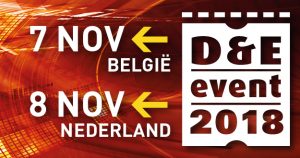 Op 7 november 2018 vindt het D&E Event plaats in Technopolis te Mechelen. Ontmoet hier ontwikkelaars en toepassers van embedded systems, ontdek de laatste technologieën en wissel visies en ervaringen uit met vakgenoten.
Op 7 november 2018 vindt het D&E Event plaats in Technopolis te Mechelen. Ontmoet hier ontwikkelaars en toepassers van embedded systems, ontdek de laatste technologieën en wissel visies en ervaringen uit met vakgenoten.
Specifieke thema’s tijdens dit event zijn FPGA, Security, Internet of Things, Electronic Design & Production en Embedded.
cEDM contribution:
Title: Predictive New Product Introduction for Smart Products
Abstract: Smart products that build-up the Internet of Things are often highly innovative and mandate a short time-to-market. A traditional product development approach applying experience based (conservative) design rules and extensive qualfication tests is obsolete. A smart New Product Introduction methodology is required “to go where no-one has gone before”. A high level of predictive power regarding manufacturability, supply chain readiness, quality and reliability, cost, etc. is demanded from an agile New Product Introduction methodology for Smart Products. Science allows us to predict that what we have never experienced before. The basic elements of such a science-based Predictive NPI approach – technology qualification, quality and reliability physics and virtual prototyping – will be presented as well as its practical implementation.
Best practices toward robust sensing & control of your system
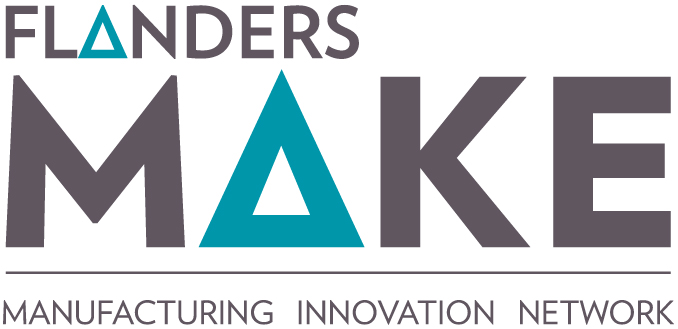 The Mechatronica 4.0 project aims to help Flemish companies to put the Industry 4.0 philosophy into practice. Sensing and control technology will be a key feature of the next generation of autonomous, safety and inspection systems, and it is the focus of our next Mechatronics 4.0 Masterclass. The aim of this masterclass is to inform you about the possibilities of sensing and control systems, to provide you insights into how to integrate these systems into products or production systems and how to develop them in an effective way.
The Mechatronica 4.0 project aims to help Flemish companies to put the Industry 4.0 philosophy into practice. Sensing and control technology will be a key feature of the next generation of autonomous, safety and inspection systems, and it is the focus of our next Mechatronics 4.0 Masterclass. The aim of this masterclass is to inform you about the possibilities of sensing and control systems, to provide you insights into how to integrate these systems into products or production systems and how to develop them in an effective way.
Typical questions that will be addressed during the masterclass:
- Which control technique fits my application?
- What can learning control add to my product?
- Which hardware and toolchain can I use to develop my system?
- How do I put model-based control design into practise. In addition, the Mechatronics 4.0 project members will present their views on sensing and control technology, which enable the realisation of smart, adaptive products. The different themes will be illustrated with industrial use cases.
Make your product future proof!
Advanced Engineering is een gloednieuw event voor de creatie en de vervaardiging van vernieuwende producten.
Alle aspecten komen aan bod: ontwerp, engineeringsproces en prototyping, materialen en componenten, alsook connectiviteit.
Advanced Engineering, dat zijn twee vliegen in één klap: een gratis beurs met meer dan 100 standhouders die u helpen om uw producten klaar te maken voor de toekomst in combinatie met een krachtig congres met meer dan 50 topsprekers.
Ontmoet meer dan 100 standhouders, experten en pioniers die helpen om uw producten future-proof te maken. Want sparren met collega's uit andere sectoren helpt echt!
Update uw kennis tijdens het uitgebreide congres met meer dan 50 sprekers.
Ontdek een groot aanbod aan hoogtechnologische staaltjes tijdens de Experience tour
Verbreed uw netwerk met experten uit de smart electronics industrie tijdens het DSP Valley Matchmaking Event
Ga mee op exclusief bezoek bij Volvo Car Gent
cEDM contribution:
Title: New Product Introduction methodology for reliable smart products
Abstract: Smart products are often deployed in significant numbers in an always connected and active network. Therefore, the availability and operationability of the smart application depends critically on the reliability of the build-in electronics. The smart products are often highly innovative and mandate a short time-to-market. A traditional product development approach applying (conservative) design rules and extensive qualfication tests based on field experience is obsolete. An agile New Product Introduction methodology is required. The basic elements of such an NPI approach - Physics-of-Failure, science based technology qualification and virtual prototyping - will be presented.
Can electronics sense its own health?
In the frame of the preparation of an SBO (‘strategisch basisonderzoek’) project proposal, we would like to invite industrial research and technical experts in the field of electronics design to support us in defining the research objectives and end goal(s) of the project.
The project lies in the field of Prognostic Health Monitoring (PHM) for electronic systems. PHM is a key enabling technology where the extent of degradation is monitored in a self-learning electronic system providing early warning of failure and a Remaining Useful Life time estimation. The solution we aim for is based on a hybrid approach. On one side, we add sensors to the systems that are measuring direct or indirect physical degradation of the system. On the other side, all relevant electrical and mission profile data is collected over time and leads to self-learning systems able to predict their own health, or the health of similar systems elsewhere in the field.
It is obvious that this is an extremely challenging objective and that the project needs focus to be realistic within the budget and time restrictions. We also aim for project results that are relevant and useful for the local industry at the end of the project, allowing for implementation in your technologies. Logical next steps for industrial valorisation after the SBO project are O&O (Onderzoek en Ontwikkeling) projects.
Discover why, discover how


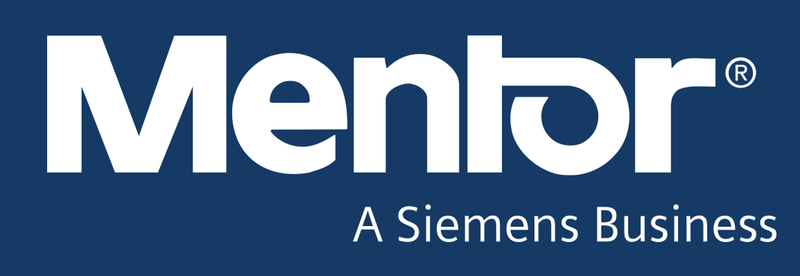
Developing a custom ASIC offers many compelling advantages. For some it is adding smarts to make a device more compelling; for others, it’s integrating a CPU and discretes onto a chip to reduce bill-of-material cost, footprint, and improve performance or protect IP. The custom ASIC process has become a much less costly and risky proposition over the last two decades. “Easy access” and “cost-effective” tools, services and IP enable development of a custom ASIC more easily and with a much lower risk.
Arm, imec.IC-link and Mentor are world leaders in the ASIC ecosystem and have joined forces to deliver a seminar for designers, engineering directors & managers and product managers to understand the latest options to deliver a product based on a custom ASIC.
The seminar will demystify the risks, explain options and explore supply chain partnership.
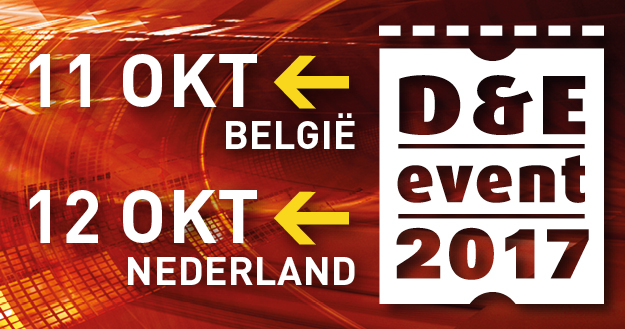 On the 12th of October 2017 the 19th edition of the Design Automation & Embedded Systems Event takes place at 1931 Congrescentrum Brabanthallen in Den Bosch. Due to growing demand from visitors and exhibitors the first edition in Belgium will be organised this year on October 11th 2017 at Technopolis, Mechelen. This annual event allows developers and applicants of embedded systems to enrich their knowledge and share the latest technologies and visions with peers. There is focus in the conference program and at the trading area to specific themes: “Internet of Things, Electronic Design /Production and Embedded design challenges”. Exhibitors inform visitors about possible improvements in the field of hardware, software and testing.
On the 12th of October 2017 the 19th edition of the Design Automation & Embedded Systems Event takes place at 1931 Congrescentrum Brabanthallen in Den Bosch. Due to growing demand from visitors and exhibitors the first edition in Belgium will be organised this year on October 11th 2017 at Technopolis, Mechelen. This annual event allows developers and applicants of embedded systems to enrich their knowledge and share the latest technologies and visions with peers. There is focus in the conference program and at the trading area to specific themes: “Internet of Things, Electronic Design /Production and Embedded design challenges”. Exhibitors inform visitors about possible improvements in the field of hardware, software and testing.
cEDM contribution:
Title: Reliability of electronics: a Physics-of-Failure based system approach
Abstract: A typical Printed Board Assembly may contain up to a few thousand components and ten times as many interconnections. Therefore, assessing the reliability of a PBA is not straigthforward. The traditional approach suffers from a few fundamental flaws especially the assumption of a constant failure rate. Physics-of-Failure (PoF) analysis provides quantified models for failure modes such as solder joint fatigue and capacitor degradation. Unfortunately, analyzing even a simple PBA with PoF is a challenge. In this presentation, the basic steps of a comprehensive PoF analysis of a PBA are discussed as well as a pragmatic way of gradual implementation.
